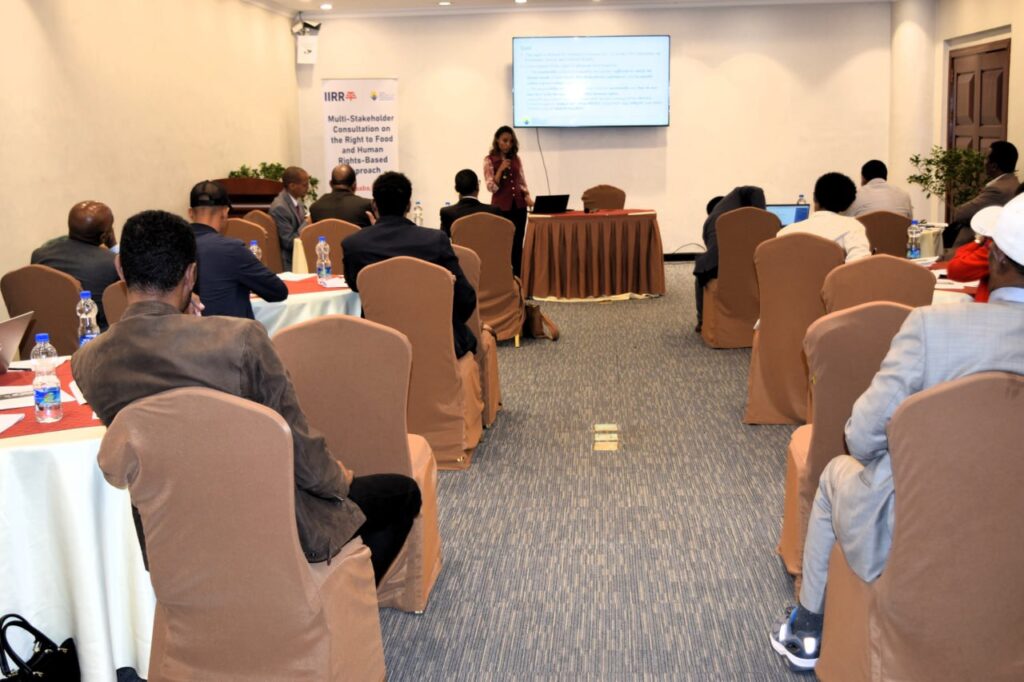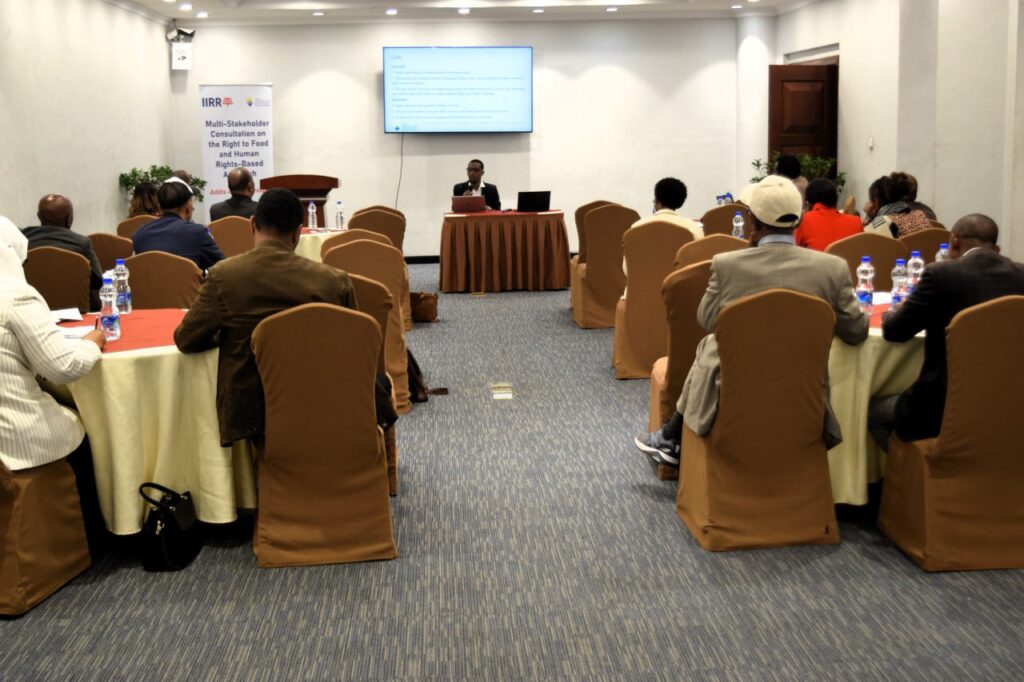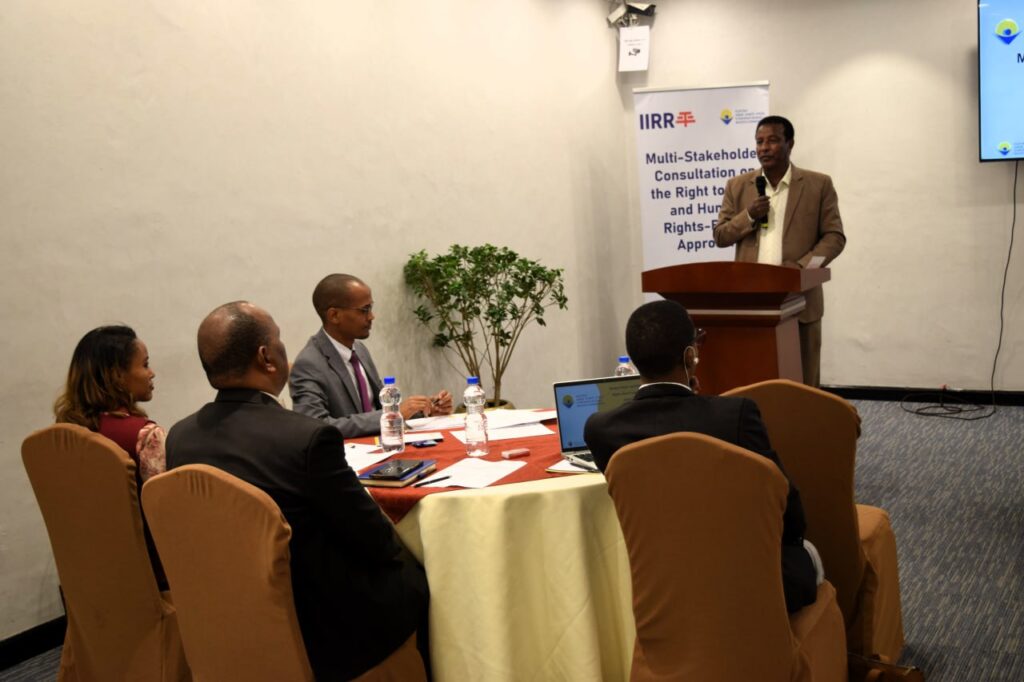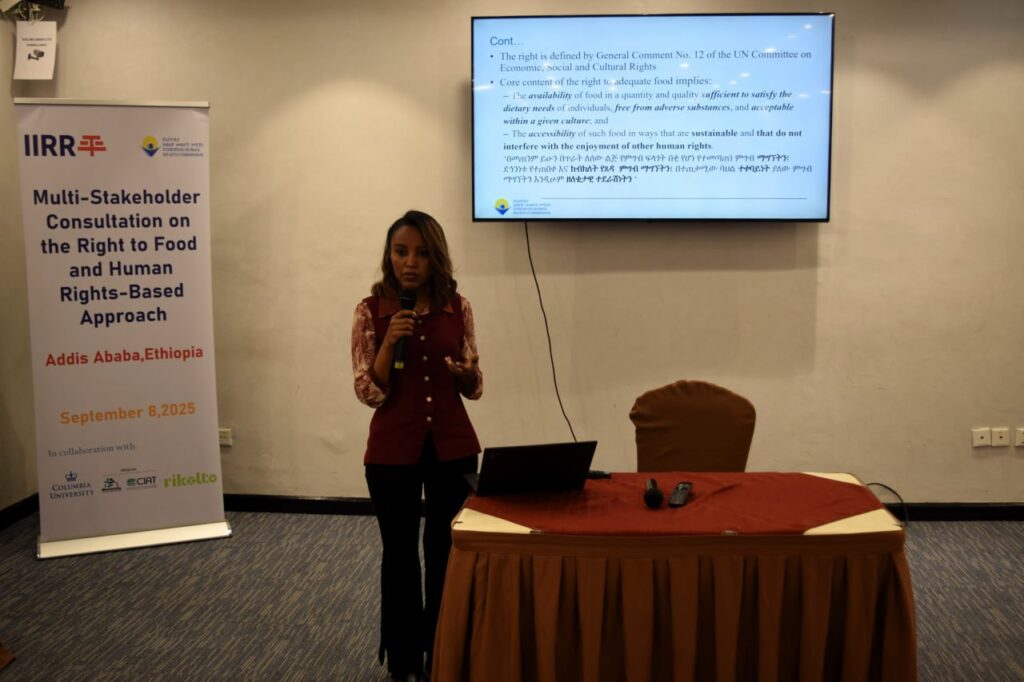The Ethiopian Human Rights Commission (EHRC), in collaboration with the International Institute of Rural Reconstruction (IIRR), held a multi-stakeholder consultation on “The Right to Food and Human Rights-Based Approach” on September 8, 2025, in Addis Ababa. Aimed at promoting the integration of Human Rights-Based Approach (HRBA) principles into Ethiopia’s national food system policies and practices, the consultation brought together a diverse group of stakeholders, including representatives of the House of Peoples’ Representatives (HoPR) standing committees, government institutions, civil society organizations and community-based cooperatives.


Participants engaged in discussions on key topics, including state obligations under the right to food, the principles of HRBA, the interlinkage between food systems and human rights and existing legal frameworks. A panel discussion explored current challenges, opportunities and potential pathways for advancing the right to food and other related human rights within Ethiopia’s food system. The discussion also highlighted critical measures that stakeholders must take and underscored the need for coordinated action.


Honorable Dr. Tadele Buraka, Vice-Chair of the Health, Social Development, Culture and Sports Standing Committee of the HoPR, expressed the House’s commitment to ensuring the realization of the right to food. Zerihun Lemma, Country Director of IIRR, emphasized the need to prioritize vulnerable groups, including women, persons with disabilities, peasants and rural populations, in all efforts to build inclusive, rights-based food systems.

Dr. Abdi Jibril, EHRC Commissioner for Civil, Political and Socio-Economic Rights, stressed that realizing the right to food requires consistent availability, economic and physical accessibility, cultural acceptability and responsiveness to the specific needs of vulnerable groups at risk of being left behind. He underlined that success depends on integrating HRBA principles of participation, accountability, non-discrimination and equality, empowerment and legality into all food-related policies and practices.
